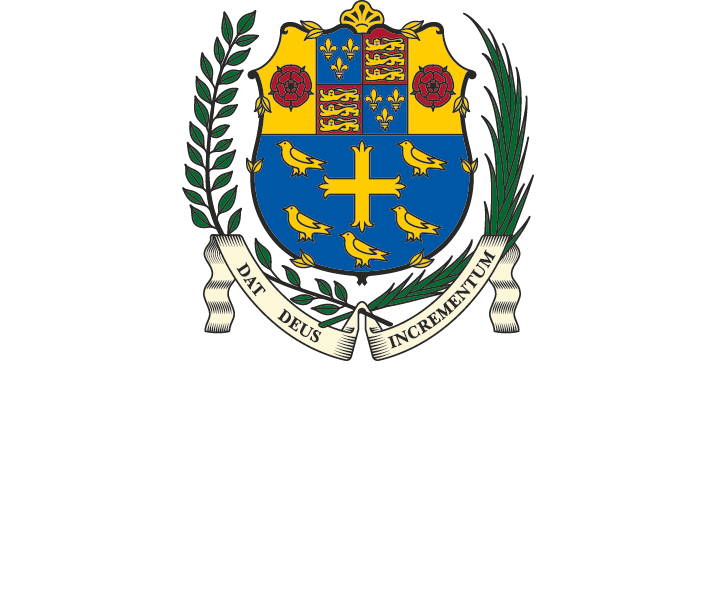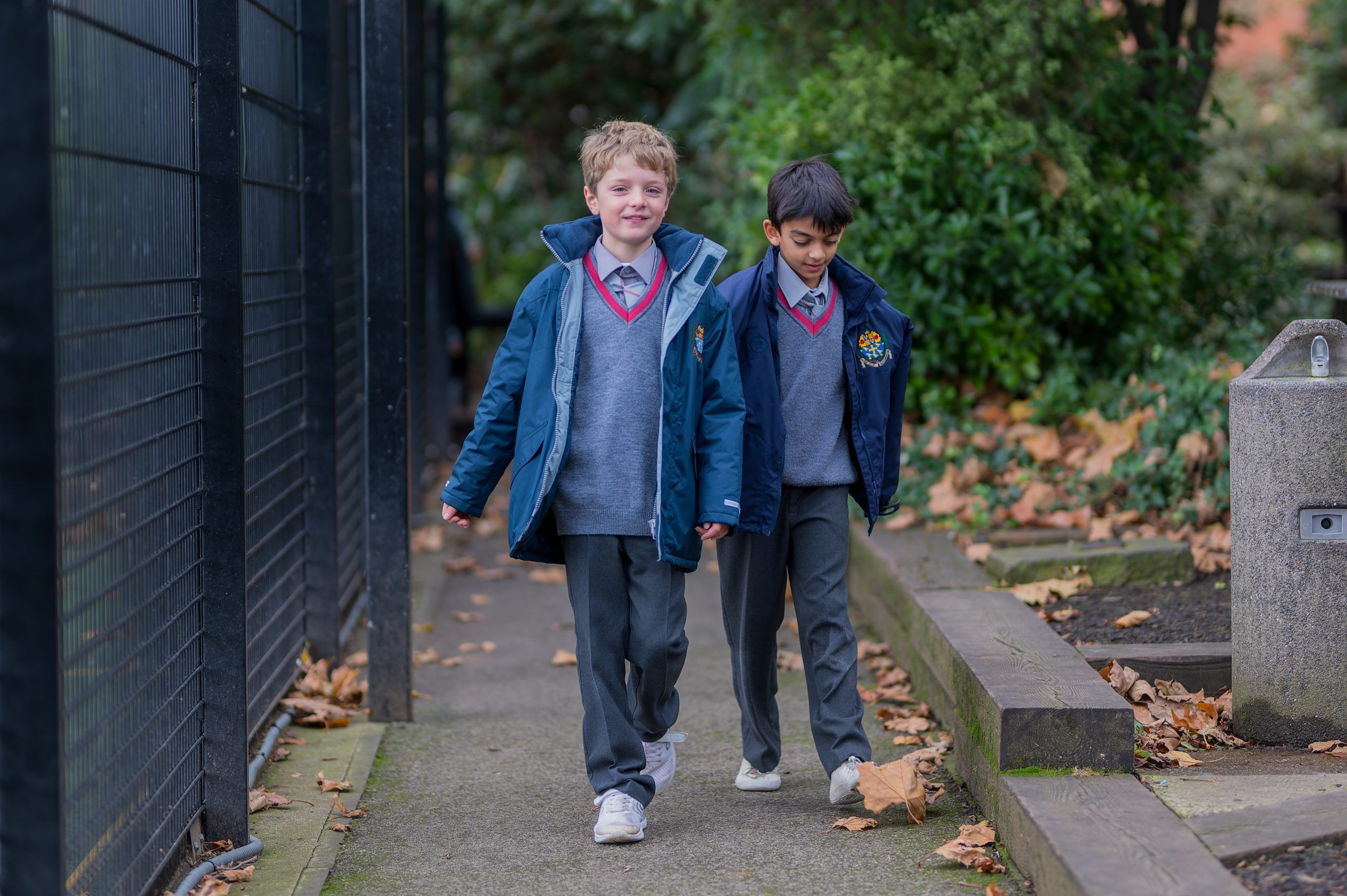Registration
- The first step in the 7+ entry process is for a parent to register their child online from 1 September two years before their intended year of entry; registration for that year will close on 30 September of the following year. Entrance exam and interview dates for 7+ entry the following September are published by the end of March each year and are available here.
- Before applying to the School, please read all the information below carefully and check our registration age checker to find out when you are able to apply for your child to join the School at 7+ entry and to view the registration timeline.
- As part of the application process and as outlined in School Fees, parents are asked to pay a registration fee, followed by an acceptance deposit if their child is offered a place.
School visit
To get a sense of what being a pupil at Westminster Under School is like, parents are encouraged to book onto a tour with their child. In the summer and autumn of every calendar year there are two 7+ Open Days for entry the following year; for more information about our Open Days and how to book, please enquire online.
At the Under School we look for potential in the candidates and for boys and girls who have natural ability and who will, therefore, thrive here. Our challenge is to find that potential, and whose natural ability will grow with the challenges a Westminster education provides. We, therefore, strongly recommend that you do not “cram” your child, or have them specifically tutored. This can detract from the freshness, spontaneity and eagerness to learn, which are some of the qualities we are looking for.
Entrance Examinations
In mid-October, all for the 7+ entrance assessments will sit tests in Mathematics, English, Verbal Reasoning and Non-Verbal Reasoning. Children will be placed in small groups within classrooms and there will be at least two members of staff who will help them and be with them for the duration of the exams. There will be breaks in between the papers, allowing boys and girls to use the bathroom, have a snack and some time away from the screen. Further information regarding the tests will be made available to parents once the application deadline has passed. We aim to make the assessment day an informal and friendly occasion. The papers are not designed to trip up the children but to better understand their abilities and potential.
From this pool of applicants the School then selects a group of children to take further tests and attend an informal interview with a senior member of staff.
Find out what is expected from each test below. Please be assured that a teacher will be on hand to support and prompt your child if they require it during the tasks on the assessment day. Most candidates finish the assessment day having enjoyed the challenge.
THE ENGLISH TEST
Writing: Candidates should be able to express themselves creatively and accurately. We require children to write in a way that should be familiar to any pupil who has followed the Key Stage 1 and 2 programme of study, or equivalent; for example continuing a story, writing a diary, and checking for spelling, punctuation and grammar.
Reading: Candidates should be reading aloud to others as well as reading to themselves regularly. They should be able to discuss the stories, their meaning and any new vocabulary encountered.
THE MATHEMATICS TEST
It will be assumed that candidates have completed a programme of study contained within the National Curriculum. Candidates should have a sound understanding of place-value, a grasp of the four arithmetic operations and the ability to apply them in problem solving, which is a key focus. They should have a range of mental calculating strategies (for example, doubling and division for the 2,4,5 and 10 times tables, and to be able to deduce other results from these). They should also have a practical experience of measurement and shape. They should understand the concept of fractions at a basic level.
THE REASONING TEST
There will be tests in Verbal and Non-Verbal Reasoning, which will test thinking skills. Candidates do not need to do any preparation for Verbal and Non-Verbal reasoning, although familiarisation with these type of papers may increase confidence for those who have not had previous experience with them. There are a number of examples of reasoning books available online or from a wide number of bookshops. Excessive practice at these is not recommended.
Classroom activity and interview
Based on the results of the written papers, later in November the School invites back approximately 50 children for classroom activities and an interview. Pupils experience a session similar to a typical school morning; they will be settled in with games before they start their assessment. The day includes an outside play break and a snack and drink. They will be interviewed by the Master and another member of the Senior Management Team who will encourage them to talk about themselves, and to discuss their genuine interests and enthusiasms. We are looking for children who have a spark and a passion. Quiet or shy children are equally enthusiastic in talking about the topics that fascinate them. This is a chance for us to get to know candidates. The aim is to make the day as normal and as comfortable as possible with friendly teachers encouraging and supporting the children.
Offer of a place
Shortly after the classroom activity and interview day, the School will contact candidates’ parents to let them know whether their son has been offered a place. The deadline for offer acceptance is usually at the end of January.
Scholarships and Bursaries
We do not offer scholarships and bursaries at the 7+ or 8+ entry points. For information about 11+ entry Music Scholarships and bursaries, please see the Scholarships and Bursaries page.
Special Educational Needs and Disabilities (SEND)
Parents should inform the Admissions Department about a candidate’s particular needs, providing any reports from suitably qualified professionals. The School is happy to make reasonable adjustments to the admissions process to enable SEND pupils to participate fully and to the best of their abilities. Extra time will be available, if required. The Head of Learning Development (SENCO) works closely with the Admissions Team to make decisions about any access arrangements requested for entrance exams. The regulations set out by the Joint Council for Qualifications (JCQ) are used to determine whether or not a prospective pupil should be allowed any concessions in the entrance exams.
The School’s Admissions Policy sets out the ‘pre-conditions’ required for selection. All decisions relating to SEND matters are made with regard to the provision of reasonable adjustments as set out in the Equalities Act 2010. For information about SEND provision once a child joins the School, please refer to the School’s SEND Policy and Learning Enrichment page.
English as an additional language (EAL)
The School accepts pupils whose first language is not English, and indeed many pupils speak two or three languages fluently, but lessons move at a fast pace and a pupil who does not speak good English could struggle, so proficiency in English will be assessed to ensure an applicant has the minimum necessary skills.Overseas Applicants
Westminster Under School is a day school which does not offer boarding. The School will not accept applications from overseas unless at least one parent is resident at all times in or near to London and the child is able to commute daily from their home to School.After Westminster Under School
For Westminster Under School pupils who join the Under School in Year 3, entry to Westminster School is not automatic and progress must be maintained. Pupils who join at 7+ entry need to sit assessments between mid-November and mid-January of Year 6, to determine whether they have a place at Westminster School in Year 9. These online assessments are the same as those which pupils hoping to enter the Under School at 11+ sit as part of their application process. Find out more about the assessments in 11+ entry.
All pupils will be given full support as they consider their senior school options, regardless of which school it is that they transfer to in Year 9.
Find out more about Westminster Under School’s connection to its senior school equivalent. For further information about admissions, please refer to our Admissions Policy.


